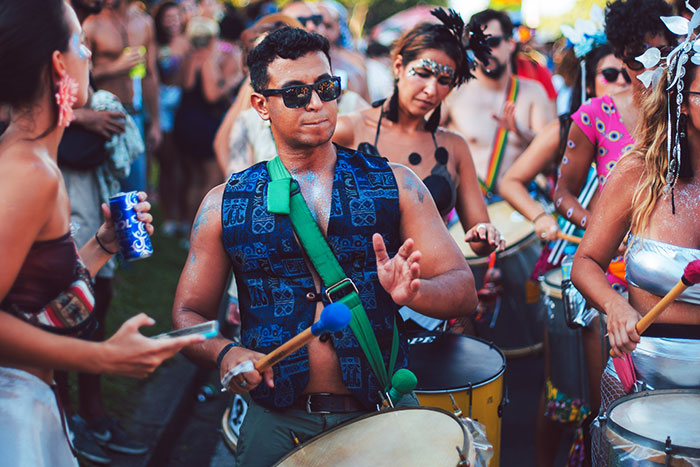The Independent League of Samba Schools in Rio de Janerio (LIESA) announced on Thursday that the annual Rio carnival that holds every February will not hold next year as a result of the coronavirus pandemic. This is the first time in over a century that the carnival will not hold, LIESA stated. This announcement is coming after Brazil records the second-highest death toll after the United States with 139,000 deaths.
LIESA stated that preparations for the next Rio carnival were halted in March following Rio’s governor’s order to restrict gatherings of large groups. The authorities in Rio are however yet to announce if the street parties attended by millions of people will be canceled or not. The Tourism Promotion Agency said the carnival cannot hold safely without a vaccine to stop the spread of COVID-19.
The first case of COVID-19 in Rio was confirmed on February 26, just one day after the end of the 2020 Rio carnival. Authorities said Brazil has the third-highest number of confirmed cases at 4.6 million cases and a death toll of 139,000 with 15,000 deaths reported in Rio. Tens of thousands of people from all over the world watch the procession of dancers, drummers, and floats beneath the Sambadrome bleachers. LIESA stated that with such a huge number of participants and observers, safety cannot be guaranteed.
“COVID-19 has put a hold on a whole cultural and productive process because many low-income workers depend on the annual carnival for survival. The Samba schools are neighborhood establishments. Many residents of our communities benefit from the carnival,” said Luiz Antonio Simas, a historian and carnival expert.
The annual Rio carnival is marked by processions of magnificent floats followed by drummers and heavily costumed dancers who also sing, from different Samba schools. The Samba schools did not participate until the 1930s stated Simas. Prior to that, the carnival was held in dance halls and on the streets with no form of organization. The parades of floats, drummers, and beautifully decorated dancers were added in the 1980s and have remained the best part of the carnival since then.
According to Simas, the preparation for the next carnival stopped in March after the governor of Rio placed a ban on large gatherings. Many of the members of Samba schools have taken up other professions as uncertainty and gloom looms around next year’s carnival.
Jorge Castanheira, LIESA’s president said World War II and two decades of military dictatorship did not put a hold on the Rio carnival. According to him, the Rio Carnival has been held annually without break for over a hundred years. In 1912, the Carnival was postponed for two months to mourn the death of Rio’s foreign relations minister. This unusual event was recounted in Luís Cláudio Villafãne’s The Day They Delayed Carnival.
Castanheira also stated that the plan is to wait until there is a vaccine that can give people the required protection from coronavirus. He stated that it is not possible to set a date for the carnival without putting necessary safety conditions in place. Rio has also canceled the second biggest event of the year; the New Year’s Eve party held annually at Cabana Beach.
The tourism promotion agency, Riotur said to reporters that canceling the carnival will cost Rio a lot of money as this year’s carnival raked in 4 billion reais ($725 million) for the government. The agency also has nothing to say about the street parties that accompany the carnival. The parties vary in number and attract dozens to millions of partygoers. The most crowded street party often contains up to 2 million revelers.
The President of Os Blocos da Sebastian has announced that the school has canceled their 11 parties that attract over 1 million guests. She stated that the decision is to ensure that people are safe and she believes other people will make the same decision. Mangueira’s Samba school drummer, Lando Braz Neto also has told reporters that it is impossible to hold the carnival right now. He said that millions travel into Rio for the carnival but most countries have restricted movements as a result of the pandemic.
Experts believe that the virus is mutating making, it more contagious and widespread. However, it is still uncertain whether the new strain has more lethal symptoms or not.
Source: theguardian.com









